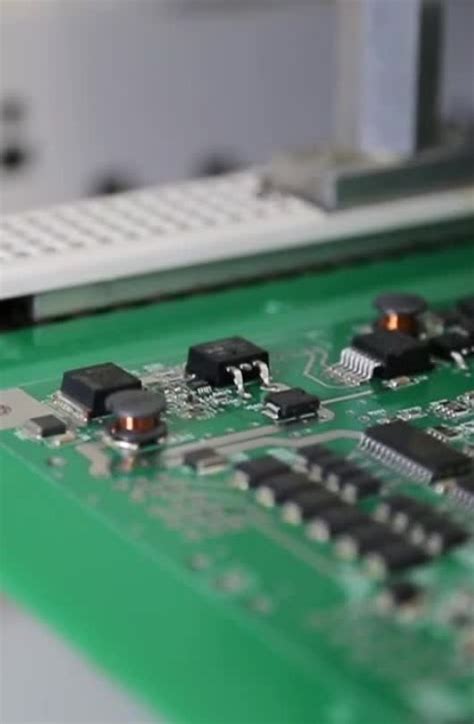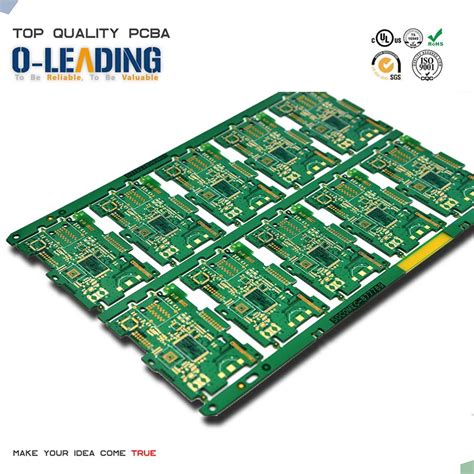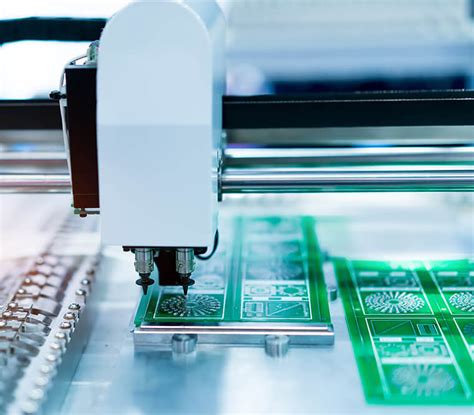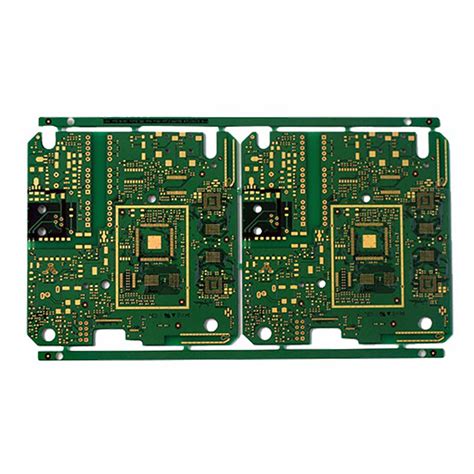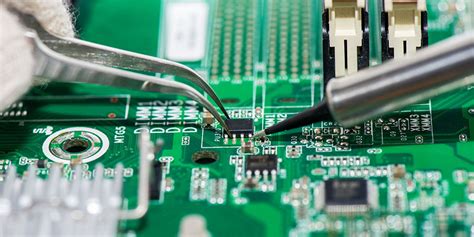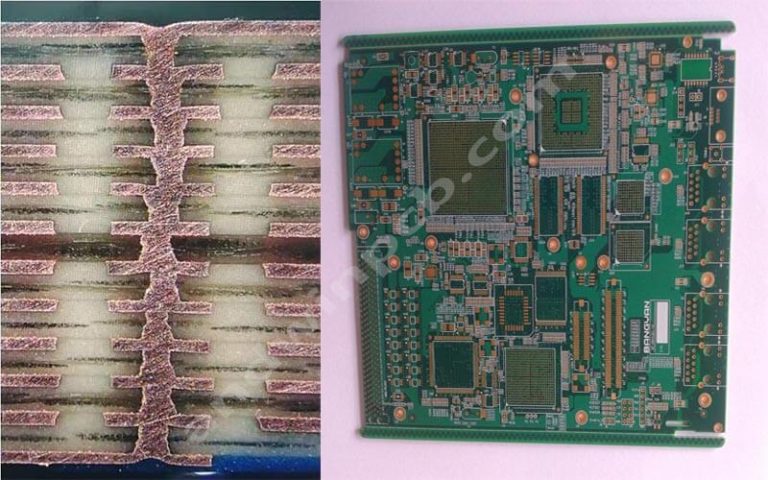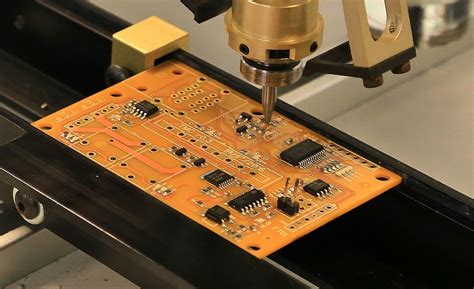Revolutionizing Electronics: The Power of Turnkey PCB Assembly
Key Takeaways
The advent of turnkey PCB assembly services has revolutionized how electronic devices are manufactured, marking a significant shift in the industry landscape. At the core of this transformation is the way pcba processes are integrated, offering manufacturers a comprehensive solution that simplifies design, production, and delivery. By utilizing turnkey PCB assembly, businesses can significantly reduce overhead costs and streamline their supply chains, as they rely on a single provider to manage multiple aspects of production. This integration results in enhanced communication and coordination, minimizing delays and potential errors that often occur when managing separate suppliers. Moreover, the ability to outsource these complex processes allows companies to focus on their core competencies and innovation while benefiting from improved efficiency in terms of time and resource consumption. As the electronics market continues to evolve towards smarter and more innovative technologies, the role of turnkey PCB assembly becomes increasingly essential in supporting rapid product development cycles and ensuring timely market entry for new solutions.
Understanding Turnkey PCB Assembly: The Future of Electronics Manufacturing
In today’s rapidly evolving electronics landscape, turnkey PCB assembly, often referred to as PCBA, is revolutionizing the way products are developed and brought to market. This approach consolidates multiple stages of manufacturing, encompassing the design, sourcing of components, assembly, and testing into a single cohesive service. By leveraging a single provider for these processes, companies can significantly mitigate risks associated with managing multiple suppliers. One of the transformative effects of turnkey PCB assembly is its capacity to enhance efficiency throughout the production pipeline.
The adoption of PCBA solutions not only streamlines workflows but also fosters a culture of innovation. According to industry insights:
“Efficient production processes are fundamental in reducing waste and improving output quality, allowing companies to focus on product advancement rather than logistical hurdles.”
Moreover, cost efficiency is another critical advantage; by integrating sourcing with manufacturing practices, companies can achieve significant savings on both materials and labor. This holistic approach allows businesses to reduce lead times while ensuring that they remain competitive in a market that demands swift delivery without compromising quality.
To better understand the role of turnkey PCB assembly in modern manufacturing dynamics, consider the following table that highlights key components:
| Component | Benefit |
|---|---|
| Centralized Sourcing | Reduces costs by minimizing supplier networks |
| Integrated Testing | Ensures product reliability before shipping |
| Streamlined Logistics | Accelerates time-to-market |
| Enhanced Quality Control | Boosts end-product performance |
In conclusion, as industries continue to embrace technological advancements, the importance of turnkey PCB assembly solutions will only grow. Their capacity to streamline production processes drastically enhances overall productivity while paving the way for groundbreaking innovations in electronics design and manufacturing. As we look toward the future, understanding and implementing these systems will undoubtedly be essential for any organization aiming to thrive in this competitive sector.
Key Advantages of Turnkey PCB Assembly in Modern Production
The advent of turnkey PCB assembly services has marked a significant transformation in the landscape of electronics manufacturing. One of the most notable advantages is the integration of multiple manufacturing steps into a single, streamlined process. This efficiency allows companies to focus on core competencies, while the complexities of PCBA logistics, sourcing components, and final assembly are managed by specialized providers. By outsourcing these aspects, businesses can effectively reduce overhead expenses and minimize production time. Furthermore, this approach not only fosters quicker response rates to market demands but also enhances quality assurance through standardized procedures by experienced professionals in the field. Another advantage lies in scalability; firms can easily adjust their production volumes without the need for extensive investments in new equipment or facilities. As a result, manufacturers can respond promptly to fluctuations in consumer demand while maintaining high standards for their products. Overall, adopting turnkey PCB assembly brings about significant improvements in operational efficiency and cost-effectiveness, ultimately paving the way for innovative advancements within the industry.
How Turnkey PCB Assembly Reduces Costs and Improves Efficiency
Turnkey PCB assembly (PCBA) has emerged as a critical factor in reducing production costs while simultaneously improving efficiency across the electronics industry. By providing a comprehensive solution, turnkey services streamline the entire PCB assembly process, allowing manufacturers to minimize labor costs and eliminate the need for multiple suppliers. This holistic approach means that clients can focus on their core competencies, reducing the time spent on logistics and coordination. Furthermore, turnkey PCBA services utilize advanced technology and automated systems that enhance precision and speed during the assembly process. As a result, companies can significantly shorten their production cycles, leading to faster delivery of their products to the market. In addition, by relying on one source for their PCB assembly needs, businesses can reduce overhead expenses commonly associated with managing multiple vendor relationships. The culmination of these benefits not only translates into cost savings but also facilitates greater innovation, allowing companies to invest more in cutting-edge technologies rather than operational inefficiencies. Ultimately, turnkey PCB assembly stands out as an essential strategy for organizations looking to thrive in an increasingly competitive landscape.
The Role of Turnkey PCB Assembly in Accelerating Innovation
In today’s rapidly evolving electronics landscape, turnkey PCB assembly plays a pivotal role in accelerating innovation. By offering a comprehensive solution that encompasses design, manufacturing, and testing, turnkey PCB assembly enables companies to streamline their workflows and focus on core technological advancements. The integration of PCBA solutions allows manufacturers to reduce lead times significantly, ensuring that new products reach the market more swiftly than ever before. This speed is critical for businesses striving to maintain a competitive edge in a sector characterized by constant change and consumer demand for the latest technologies. Moreover, by simplifying the production process through turnkey PCB assembly, companies can better allocate resources toward research and development. This enhanced focus not only fosters creativity but also facilitates the exploration of groundbreaking concepts, ultimately leading to more innovative products circulating in the marketplace. As businesses increasingly recognize the value of adopting comprehensive PCBA services, they position themselves at the forefront of technological breakthroughs and sustainable growth within the industry.
Streamlining Production Processes with Turnkey PCB Assembly
Turnkey PCB assembly services are reshaping how manufacturers approach the PCBA process, enabling a more integrated and efficient workflow. By providing a comprehensive solution from design to production, these services create a seamless transition that reduces the complexities often associated with traditional assembly methods. This shift allows companies to focus on their core capabilities rather than getting bogged down by the intricacies of sourcing components, assembly, and testing. As a result, businesses can achieve a higher level of operational efficiency and productivity. Moreover, the adoption of turnkey PCB assembly minimizes the risk of miscommunication between different suppliers, ensuring that all aspects of production align perfectly with project specifications. This cohesion not only streamlines timelines but also contributes significantly to improving product quality and reliability. With quicker assembly times and reduced labor costs, organizations can respond to market demands more effectively, fostering an environment ripe for innovation in technology and design. Ultimately, the implementation of turnkey PCB assembly places manufacturers in a position where they can capitalize on new opportunities faster than ever before.
Case Studies: Successful Implementations of Turnkey PCB Assembly
The implementation of turnkey PCB assembly has showcased remarkable success stories across various sectors, illustrating its profound influence on electronics manufacturing. For instance, a leading consumer electronics company adopted a pcba solution that integrated everything from design to assembly under one umbrella, dramatically enhancing their production timelines. By consolidating services, this organization not only streamlined workflows but also reduced the likelihood of errors, ensuring that their products met quality standards more consistently.
Another salient case involves an automotive tech firm that leveraged turnkey PCB assembly to accelerate the deployment of their electric vehicle components. The pcba process facilitated real-time communication between design and production teams, allowing them to address challenges swiftly and adopt necessary adjustments without significant delays. This agility enabled the firm to launch innovative features ahead of competitors while optimizing operational costs.
Moreover, a startup specializing in medical devices integrated turnkey solutions in their manufacturing processes. By embracing this model, they minimized overheads and could devote more resources toward research and development, hastening the introduction of groundbreaking healthcare solutions. These examples underscore how turnkey PCB assembly serves as a catalyst for enhanced efficiency and ingenuity in production practices across diverse industries, paving the way for advanced technologies and more robust market positioning.
Challenges and Solutions in Turnkey PCB Assembly
While turnkey PCB assembly offers numerous advantages for the electronics manufacturing sector, it is not without challenges. One of the primary hurdles is ensuring the availability of high-quality components. The success of pcba relies heavily on sourcing reliable materials; thus, companies must establish strong relationships with vendors to mitigate risks associated with component shortages and quality discrepancies. Another challenge is managing complex logistics as multiple suppliers may be involved in the production process. To tackle this, manufacturers can implement integrated supply chain solutions that facilitate better communication and coordination among all parties involved.
Additionally, managing the intricate design specifications in pcb assembly can prove to be difficult. Variations in design come with unique requirements, which necessitate adaptability from assembly providers. Utilizing specialized software for design verification and production planning can help streamline this process, ensuring that any potential issues are identified early on.
Lastly, the rapidly evolving technology landscape demands that turnkey solutions remain flexible and scalable. Companies can address this by adopting modular approaches to turnkey PCB assembly, allowing them to easily upgrade components and processes as new technologies emerge. Overall, recognizing these challenges and implementing effective solutions not only enhances efficiency but also reinforces the significant benefits of turnkey PCB assembly in promoting innovation within the electronics industry.
The Impact of Turnkey PCB Assembly on Time-to-Market Strategies
The introduction of turnkey PCB assembly has significantly influenced time-to-market strategies across various sectors within the electronics industry. By providing a comprehensive solution that integrates design, manufacturing, and assembly processes, turnkey PCBA services help companies expedite their product development cycles. This integration minimizes the complexities traditionally associated with separate sourcing and assembly vendors, thereby streamlining communication and reducing the overall production timeline. With turnkey PCB assembly, firms can focus on refining their core technologies without the distraction of managing multiple suppliers. Additionally, quicker access to high-quality components through consolidated supply chains means that products can move from conception to market-ready in record time. Ultimately, this efficient process not only fosters timely product launches but also enhances a company’s ability to respond to evolving consumer demands swiftly—an essential competitive edge in today’s fast-paced market environment. As businesses continue to embrace turnkey PCBA, they will likely gain substantial benefits, including improved agility and heightened innovation capacity, thereby reshaping their overall strategic approach to product development.
Conclusion
The evolution of turnkey PCB assembly has significantly influenced the landscape of electronics manufacturing, allowing organizations to remain competitive in a rapidly changing marketplace. By adopting this comprehensive approach to PCB assembly, companies can not only streamline their production processes but also optimize their resource allocation. This ultimately leads to reduced lead times and improved overall product quality. The integration of pcba solutions streamlines complex operations, enhancing coordination among different production stages and effectively mitigating potential bottlenecks. Moreover, as the demand for innovative technologies continues to rise, turnkey PCB assembly emerges as a critical enabler for businesses aiming to shorten their time-to-market. The collaborative environment fostered by this model encourages agility and adaptability, making it easier for firms to respond swiftly to market trends and consumer needs. In essence, the transformative power of turnkey PCB assembly paves the way for not just cost-effective manufacturing but also the acceleration of groundbreaking innovations that define the future of electronics.
FAQs
What is turnkey PCB assembly?
Turnkey PCB assembly refers to an all-inclusive service that manages the entire circuit board production process from design to assembly, eliminating the need for clients to oversee multiple suppliers. This streamlining enhances efficiency and reduces logistical issues.
How does turnkey PCBA differ from traditional PCB assembly?
While traditional pcb assembly may involve outsourcing various stages of production to different companies, turnkey PCBA consolidates these stages under one roof. This allows for a more cohesive workflow and can significantly decrease production timelines.
What are the benefits of using turnkey PCB assembly services?
Using turnkey PCB assembly services can lead to reduced costs, improved lead times, and better communication between the manufacturing partners. It simplifies the development process by providing a single point of contact.
Can turnkey PCB assembly improve product quality?
Yes, by streamlining production and maintaining tighter control over each phase of pcba, manufacturers can enhance quality assurance, leading to higher-quality electronics that meet industry standards.
What industries benefit from turnkey PCB assembly?
Many industries, including consumer electronics, automotive, medical devices, and telecommunications, benefit from turnkey pcb assembly due to its efficiency and ability to reduce time-to-market.
For more thorough insights about PCB Assembly, please click here: Turnkey PCB Assembly Solutions

